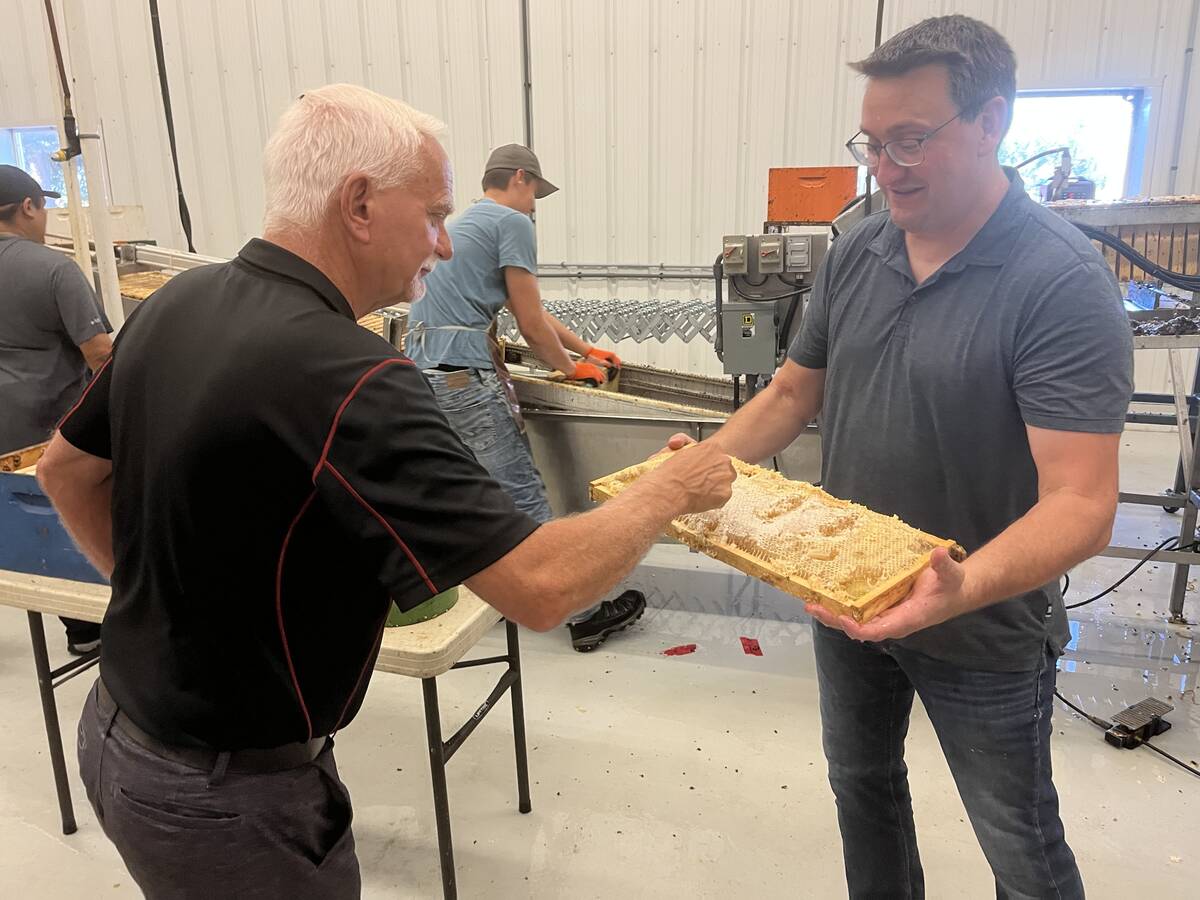Farm chemical residues found in drinking water sources in Davidson, Sask., are below the allowable guidelines for other pesticides, says a provincial government official.
Sam Ferris, manager of the provincial environment department’s standards branch, said there are no standards for the two chemicals found in three water samples taken by organic farming advocate Elmer Laird in August. But the residues are “at least 10 times lower” than the maximum allowed for other agricultural chemicals, Ferris said.
Triallate, an ingredient of the herbicides Avadex and Fortress, was found at levels of 2.9 parts per billion at the deep well and surface reservoir from which Davidson draws its water, and at 0.6 ppb at the airport well used by farmers for non-drinking purposes.
Read Also

Alberta honey business ‘thrives’ despite bumpy beginnings
Thrive Honey showcases its honey production in market where Alberta produces 40 per cent of all honey produced in the country
Deltamethrin, the active ingredient of the pesticide Decis 5, was found at 0.4 ppb in the deep well.
Ferris said the allowable maximums for residues in drinking water of diacamba are 120 ppb, malathion 190 ppb and 2,4-D 100 ppb.
Ferris also said Laird sampled raw water, which would be treated in the town’s plant before going into people’s homes. The treatment would reduce the residues further, so Ferris said the province does not feel there’s much risk in the levels found.
But Laird said the guidelines are meaningless. He collected the samples for the $8,100 tests because of concerns in the town about four local babies born in the past year with cancer.
Some suspected a connection with pesticides. However, health department officials said the cancers were not of similar types.
Laird has written to Saskatchewan’s health minister asking for a public pesticide testing program for drinking water, air and food. He is also asking the province to lobby the federal government to set residue standards that are safe for all ages.
Ferris said the province requires towns and cities to check their drinking water for pesticide residues every year or two. For rural areas, no regular testing has been done since a 1991-92 study, except for places that have had problems in the past.
Ferris said pesticides in drinking water are no worse than bacteria.
“Anything that affects peoples’ health is serious. We need to address all those issues … If you can’t drink it, you can’t drink it.”
















